- 1-Benefits-of-Bounce-Challenges-in-PE
- 2-Designing-Effective-Bounce-Challenges
- 3-Incorporating-Bounce-Challenges-into-Curriculum
- 4-Safety-Considerations-and-Guidelines
- 5-Case-Studies-from-Schools
- 6-Resources-from-Trampoline-Zone
1. Benefits of Bounce Challenges in PE
Using bounce challenges in a PE curriculum adds a dynamic and engaging component to physical education classes. Bounce challenges, which involve activities like trampoline jumping, balance tasks, and timed jumps, help improve students’ coordination, cardiovascular health, and muscular strength.
These activities encourage teamwork, goal-setting, and healthy competition, motivating students who may find traditional PE less appealing.
1.1 Enhancing Motor Skills
Bounce challenges develop agility, balance, and spatial awareness, essential skills for overall physical literacy.
1.2 Promoting Cardiovascular Fitness
Jumping activities elevate heart rate effectively, contributing to better endurance and health.
2. Designing Effective Bounce Challenges
To maximize benefits, PE instructors should design bounce challenges that cater to varying skill levels and encourage progressive improvement.
2.1 Setting Clear Objectives
Define what skills or fitness goals each challenge aims to improve, such as jump height, balance duration, or coordination sequences.
2.2 Incorporating Variety and Fun
Mix different bounce tasks and integrate team-based challenges to maintain student interest and promote social interaction.
3. Incorporating Bounce Challenges into Curriculum
Successful integration involves scheduling bounce challenges strategically within PE units and aligning them with broader physical education goals.
3.1 Progressive Skill Development
Start with basic jumping exercises and gradually introduce complex movements or time trials as students gain confidence.
3.2 Assessment and Feedback
Use bounce challenges as formative assessments to monitor student progress and provide constructive feedback.
4. Safety Considerations and Guidelines
Safety is paramount when using bounce challenges, especially with equipment like trampolines.
4.1 Proper Equipment and Setup
Ensure trampolines and mats meet safety standards, and set up bounce areas with sufficient space and padding.
4.2 Supervision and Instruction
Qualified instructors should closely monitor activities, teach correct techniques, and enforce safety rules.
5. Case Studies from Schools
At Lincoln Middle School, incorporating bounce challenges into PE led to a notable increase in student participation and enthusiasm. Teachers observed improvements in students’ balance and confidence.
Another example comes from Greenfield High, where a bounce challenge tournament fostered teamwork and healthy competition, positively impacting school spirit.
5.1 Lessons Learned
These cases demonstrate the importance of structured, safe, and varied bounce activities to engage diverse student groups.
6. Resources from Trampoline Zone
Trampoline Zone offers a wide range of high-quality trampolines and accessories tailored for educational settings. Their products support safe, effective bounce challenges and help PE teachers create fun, inclusive programs.
Additionally, Trampoline Zone provides expert guidance on equipment selection, maintenance, and activity planning to maximize educational benefits.
6.1 Why Choose Trampoline Zone
With durable equipment and specialized educational resources, Trampoline Zone is a trusted partner for schools aiming to enhance their PE curriculum.
6.2 Getting Started
Visit Trampoline Zone to explore products and services that align with your PE program goals, ensuring safe and engaging bounce challenges for students.



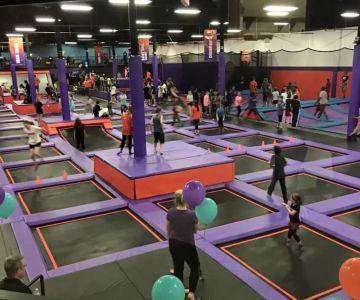
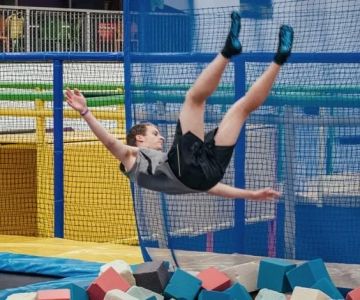
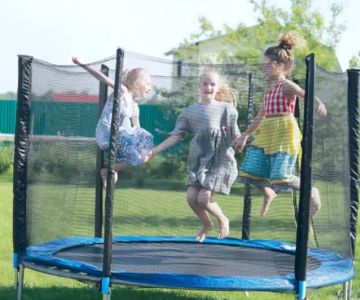
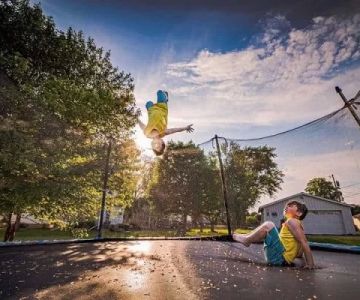
 Pump It Up Lake Forest Kids Birthday and More4.0 (280 reviews)
Pump It Up Lake Forest Kids Birthday and More4.0 (280 reviews) Urban Air Trampoline and Adventure Park4.0 (349 reviews)
Urban Air Trampoline and Adventure Park4.0 (349 reviews) Church Street Plaza4.0 (731 reviews)
Church Street Plaza4.0 (731 reviews) Fun City Adventure Park3.0 (162 reviews)
Fun City Adventure Park3.0 (162 reviews) Riki Tiki's Indoor PlayGround4.0 (35 reviews)
Riki Tiki's Indoor PlayGround4.0 (35 reviews) Urban Youth Park - South Bay4.0 (107 reviews)
Urban Youth Park - South Bay4.0 (107 reviews) Are Trampoline Parks Safe for Kids? Essential Guide for U.S. Parents
Are Trampoline Parks Safe for Kids? Essential Guide for U.S. Parents How Often Should You Replace Trampoline Springs? Tips for Proper Maintenance
How Often Should You Replace Trampoline Springs? Tips for Proper Maintenance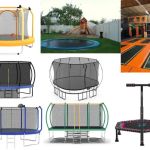 How Much Is a Trampoline? A Detailed Guide to Trampoline Costs and Buying Tips
How Much Is a Trampoline? A Detailed Guide to Trampoline Costs and Buying Tips Bounce Techniques for Stronger Legs: Effective Exercises and Tips
Bounce Techniques for Stronger Legs: Effective Exercises and Tips Essential Music Gear for Trampoline Dance: Complete Guide
Essential Music Gear for Trampoline Dance: Complete Guide Fun STEM Experiments Using Trampolines to Spark Curiosity and Learning
Fun STEM Experiments Using Trampolines to Spark Curiosity and Learning